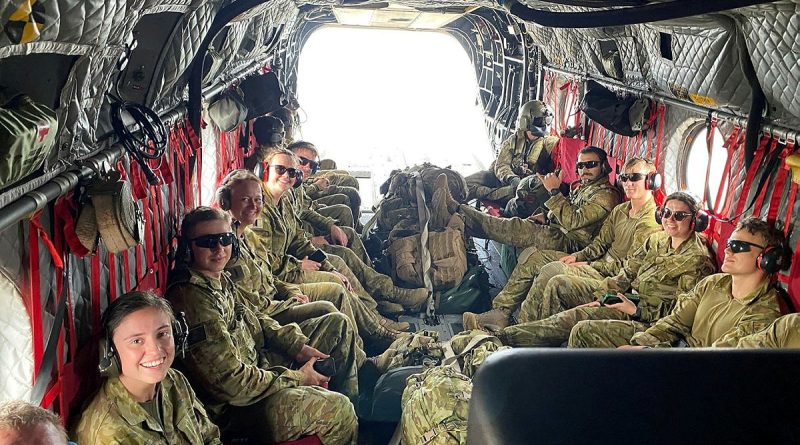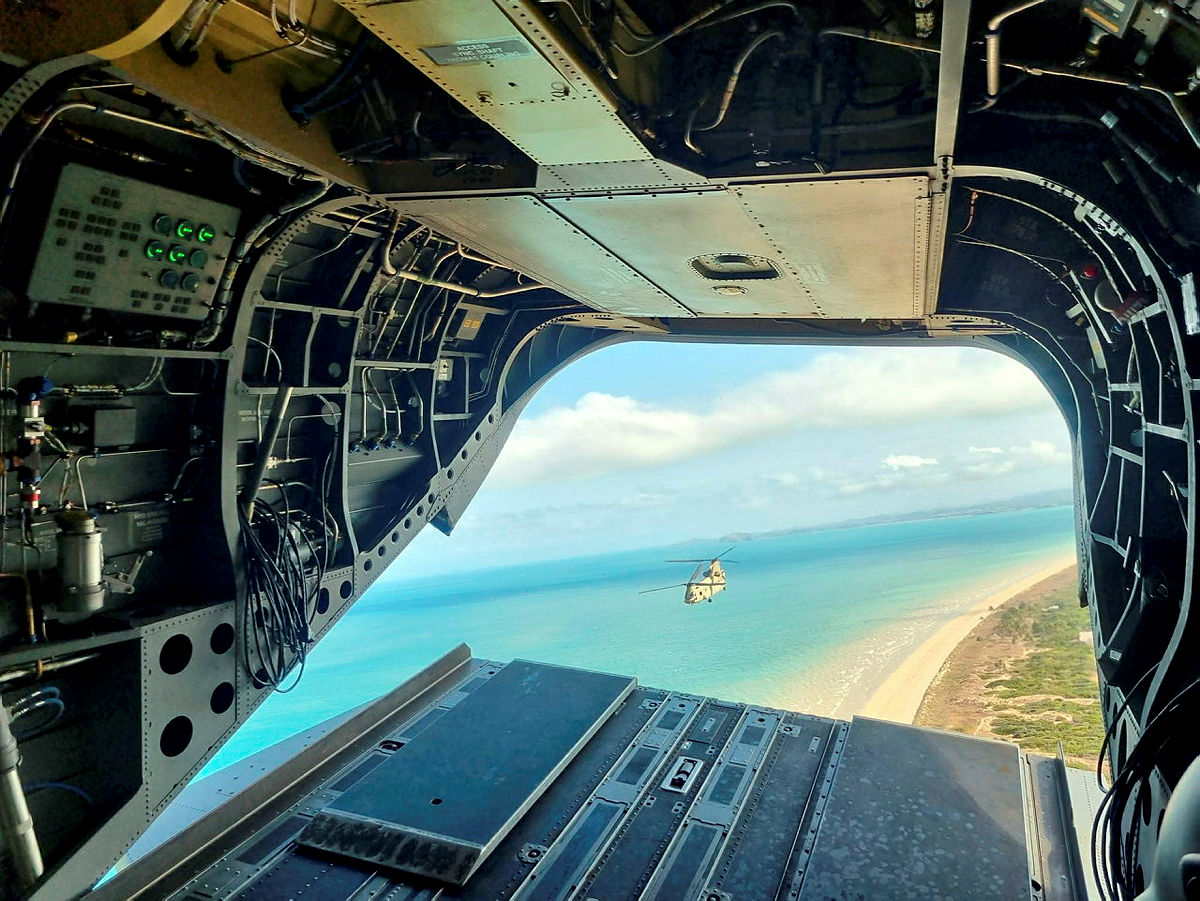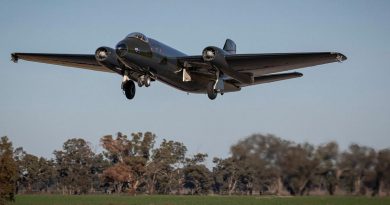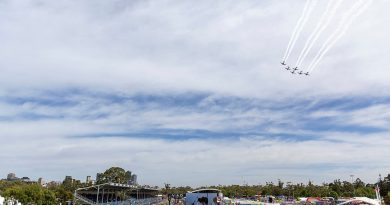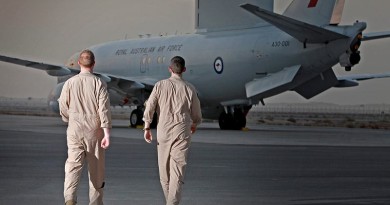Platoon executes night-time urban clearance

Algae-filled pools, boarded-up windows and overgrown grounds confronted a reconnaissance team entering a dilapidated former luxury resort, with scenes reminiscent of a post-apocalyptic film.
CAPTION: Australian Army soldiers conduct a troop lift on a CH-47F Chinook from 5th Aviation Regiment, in support of 31st/42nd Battalion, The Royal Queensland Regiment’s Exercise Burghala Bull in Central Queensland. Story by Sergeant Matthew Bickerton.
Arriving on a Chinook, the team’s infantry platoon from the 31st/42nd Battalion, The Royal Queensland Regiment (31/42RQR), waited at a distance to move in and clear the abandoned Capricorn International Resort in Yeppoon of ‘enemy’ during Exercise Burghala Bull last month.
Lieutenant Lawrence Long, a platoon commander from 31/42RQR, said buildings had been boarded up and fences erected to discourage trespassers and squatters.
“That created challenges for our recon teams regarding mobility. But our patrols could gather valuable information and report back,” Lieutenant Long said.
“Those reports helped us identify corridors into the area.”
The platoon executed a night-time clearance of a multi-story complex that harboured an ‘enemy’ party. The light of a half-moon augmented the sporadic outdoor lighting.
“Which was fine until you moved into the darkness of the building,” Lieutenant Long said.
“That’s where the NVGs [night vision goggles] struggled with the absence of ambient light.”
The clearance proved to be a challenging “slog”, providing many lessons, including the need for flexibility in assigning soldiers to rooms, focusing more on individual numbers rather than managing them strictly by sections.
“If there are casualties or other complex situations, numbers for rooms are essential,” Lieutenant Long said.
CAPTION: Army CH-47F Chinooks from 5th Aviation Regiment fly over the coast, Central Queensland.
31/42RQR usually focuses on reinforcing battle groups in conventional warfare roles, but recently pivoted towards homeland security tasks. These include vital-asset protection and vehicle checkpoints, which they incorporated into the exercise scenario.
Lieutenant Long said training at a non-Defence training area created challenges not found at a typical Defence establishment.
“Having what is essentially a small village with multi-storey buildings greatly enhanced the training. Our soldiers hadn’t encountered such complex terrain before,” Lieutenant Long said.
“And since the sections hadn’t tackled such complexity previously, it really pushed them to consider more angles.”
The exercise received support from the 5th Aviation Regiment, which provided troop and equipment transport for insertion and extraction, using CH-47F Chinooks.
.
.

.
.

